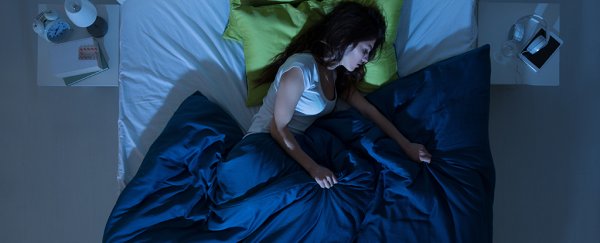We spend more than a third of our lives in bed - but that place can quickly blossom into a "botanical park" of bacteria and fungus, according to New York University microbiologist Philip Tierno.
If left for too long, the microscopic life within the wrinkles and folds of our bed sheets can even make us sick, Tierno told Business Insider.
To stem the invisible tide, he said sheets should be washed once a week.
Humans naturally produce roughly 26 gallons of sweat in bed every year. When it's hot and humid outside, this moisture becomes what scientists call an "ideal fungal culture medium."
In a recent study that assessed the level of fungal contamination in bedding, researchers found that feather and synthetic pillows between 1.5 and 20 years old can contain between four and 17 different species of fungus.
And it's not just your own microbial life you're sleeping with. In addition to the fungi and bacteria that come from your sweat, sputum, skin cells, and vaginal and anal excretions, you also share your bed with foreign microbes.
These include animal dander, pollen, soil, lint, dust mite debris and faeces, and finishing agents from whatever your sheets are made from, to name a few.
Tierno says all that gunk becomes "significant" in as little as a week. And unclean bedding still exposes you to materials that can trigger the sniffing and sneezing, since the microbes are so close to your mouth and nose that you're almost forced to breathe them in.
"Even if you don't have allergies per se, you can have an allergic response," Tierno said.
Another reason your sheets get dirty quickly has little to do with your behaviour or sweat patterns - the issue is simply gravity.
"Just like Rome overtime was buried with the debris that falls from gravity, gravity is what brings all that material into your mattress," Tierno said.
One to two weeks of this build-up is enough to leave anyone with a scratchy throat - especially those with significant allergies or asthma.(One in six Americans have allergies.)
"If you touched dog poo in the street, you'd want to wash your hands," said Tierno. "Consider that analogous to your bedding.
If you saw what was there - but of course you don't see it - after a while you have to say to yourself, 'Do I want to sleep in that?'"
An earlier version of this article was published December 2017.
This article was originally published by Business Insider.
More from Business Insider:
